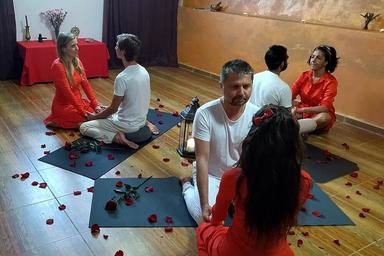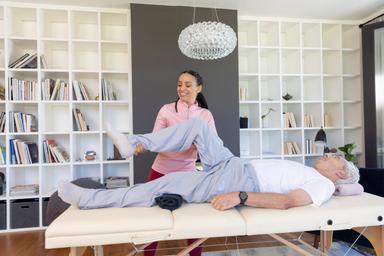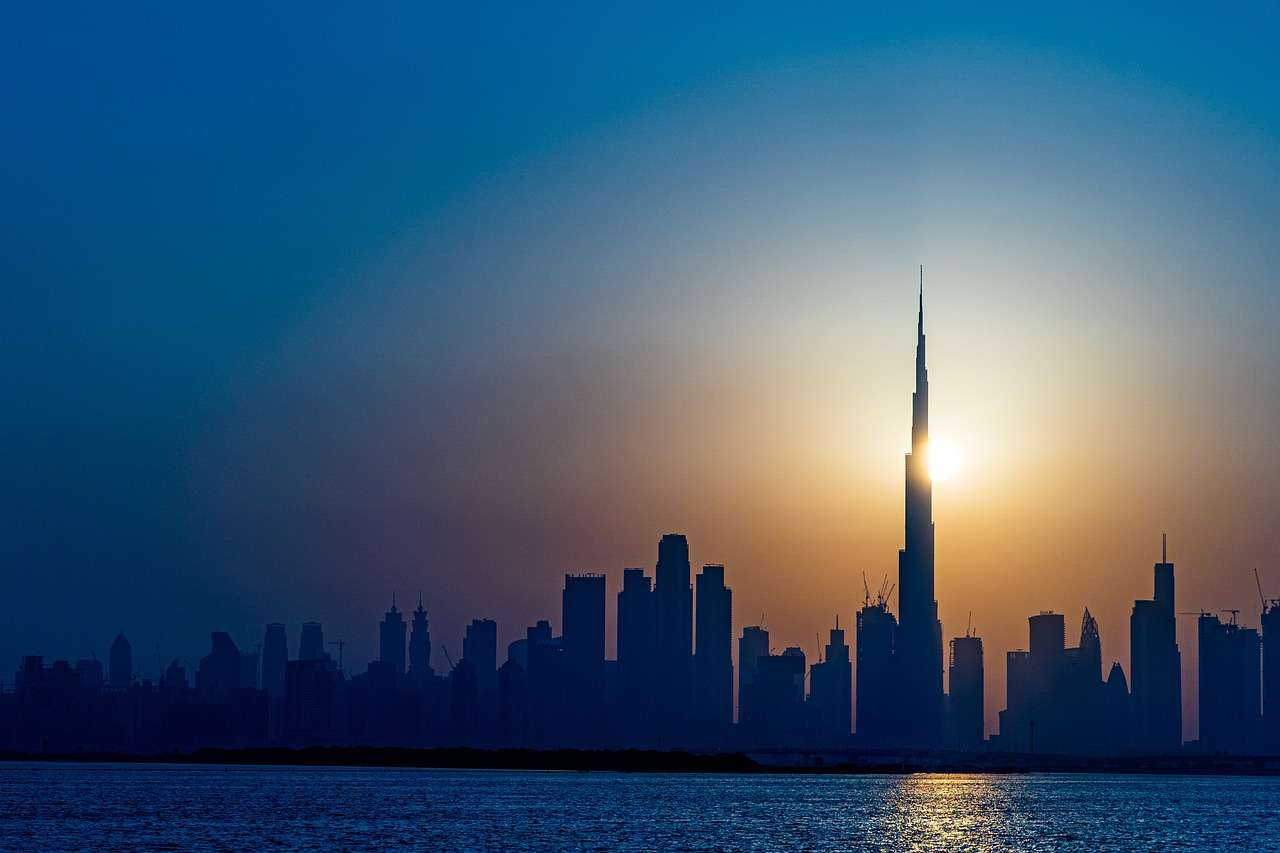
A Comprehensive Guide to Cancer Treatment in UAE
16 Jul, 2024
 Healthtrip Team
Healthtrip TeamFacing a cancer diagnosis—it's tough, right? The uncertainty, fear, and all those questions swirling around treatment options and where to get the best care—it can feel like a whirlwind. Now, imagine dealing with all of that in a foreign country, where everything about healthcare feels unfamiliar. Trying to find the right hospital, the most effective treatments, and doctors who really know their stuff—it's a lot to handle emotionally. But hey, that's why we're here with this guide. We've got your back. Whether you're wondering about the top hospitals in the UAE, the latest treatments available, or the support services that can help you through this journey, we've gathered all the info you need. It's all about helping you make informed decisions and finding the best possible care. Because navigating this road shouldn't feel like you're doing it alone—we're here to guide you every step of the way.
Most popular procedures in India
Overview of Cancer Treatment in UAE
The healthcare system in the UAE stands out for its top-notch standards and quick embrace of cutting-edge technologies and therapies. When it comes to cancer treatment, they cover all the bases—from surgery, chemotherapy, and radiation therapy to newer, advanced options like immunotherapy and targeted therapy. What sets them apart is their commitment to staying at the forefront of medical innovation. Thanks to significant investments in healthcare infrastructure and strong partnerships with global leaders, patients here get access to some of the finest care available. It's all about ensuring that everyone facing cancer has the best shot at beating it with the most effective treatments out there.
Wellness Treatments
Give yourself the time to relax
Lowest Prices Guaranteed!

Lowest Prices Guaranteed!
Symptoms of cancer
Here are some signs and symptoms that may indicate cancer:
a. Unexplained Weight Loss: Significant weight loss without changes in diet or lifestyle could signal various types of cancer.
b. Changes in Bowel or Bladder Habits: Persistent changes like diarrhoea, constipation, or unusual urinary habits should be checked out.
c. Persistent Fatigue: Feeling tired or weak despite adequate rest may be a symptom of several types of cancer.
d. Unexplained Pain: Persistent pain anywhere in the body that doesn't resolve with treatment should be evaluated.
e. Changes in Skin: Changes in moles, skin lesions, or new growths that don't heal or show alterations in size, shape, or colour could indicate skin cancer.
f. Difficulty Swallowing: Persistent difficulty swallowing or a sensation of food getting stuck in the throat may suggest throat or oesophagal cancer.
g. Persistent Cough or Hoarseness: A cough that persists or hoarseness lasting more than a few weeks, especially in smokers, may indicate lung or throat cancer.
h. Changes in Wart or Mole: Any changes in the appearance of warts, moles, or freckles, such as changes in colour, size, or shape, should be examined by a doctor.
i. Lumps or Thickened Areas: A lump or thickened area under the skin that persists or grows could be a sign of cancer, such as breast cancer or lymphoma.
j. Unexplained Bleeding: Any unexplained bleeding or bruising, such as blood in urine, stool, or coughing up blood, warrants prompt evaluation.
Diagnosis of cancer in the UAE
Treatment Options for Cancer in UAE
The UAE offers a comprehensive range of advanced cancer treatment options, ensuring patients receive the best possible care. Here’s a detailed look at the primary treatment modalities available:
1. Surgery In many cases, surgery is the first line of defence against cancer. It's where skilled surgeons in the UAE come in, using advanced techniques like minimally invasive and robotic-assisted surgeries. These methods not only shorten recovery times but also lead to better outcomes for patients. What's impressive is how they bring together teams from different specialities—oncologists, radiologists, pathologists—all working together to give you comprehensive care. For example, if someone has breast cancer, they might start with a lumpectomy or mastectomy, and if needed, they'll coordinate reconstructive surgery too. It's all about a dedicated team making sure you get the best treatment possible.
2. Chemotherapy Chemotherapy is like using heavy-duty drugs to take down cancer cells, and in the UAE, oncologists are experts at customizing treatments to fit each patient perfectly. They look at things like what type of cancer it is, how far it's spread, and overall health before crafting a plan. You can get chemo through an IV or pills, and they design the treatment to keep side effects as low as possible. Plus, they've got your back with all sorts of support—think nutritional advice and help with the emotional rollercoaster. It's all about making sure you're supported through every step of the chemo journey.
3. Radiation Therapy Radiation therapy zaps cancer cells with powerful radiation to shrink tumours and wipe out the bad stuff, all while trying to keep healthy tissue safe. In the UAE, they've got some seriously high-tech gear for this, like Intensity-Modulated Radiation Therapy (IMRT) and Image-Guided Radiation Therapy (IGRT). These tools are like super precise snipers, aiming directly at cancer cells to boost treatment success and cut down on side effects. Let's say someone's dealing with prostate cancer—they might get IMRT, where the radiation beams are adjusted to match the tumour's shape, saving nearby organs from harm. It's all about hitting cancer hard while protecting the good stuff around it.
4. Immunotherapy Immunotherapy amps up your body’s own defences to battle cancer cells like a superhero. It’s a newer field, but it’s growing fast with treatments like checkpoint inhibitors, CAR T-cell therapy, and cancer vaccines. Here in the UAE, they’re all about customizing immunotherapy to fit each patient’s unique cancer type and immune system.
For instance, checkpoint inhibitors help by blocking sneaky proteins that stop your immune system from attacking cancer cells. Then there’s CAR T-cell therapy, where they tweak your T-cells to target and destroy cancer cells more effectively. These treatments are a game-changer, especially for folks whose cancers don’t respond well to traditional methods. It’s all about giving new hope and fighting cancer in smarter, more personalized ways.
5. Targeted Therapy Targeted therapy is like precision warfare against cancer cells, honing in on specific molecules or pathways they rely on to grow and spread. It’s a much more precise approach compared to traditional treatments. Here in the UAE, they use therapies like monoclonal antibodies and small molecule inhibitors to do the job.
Monoclonal antibodies act like smart bombs, locking onto specific proteins in cancer cells and flagging them for the immune system to attack. Meanwhile, small molecule inhibitors work by blocking the signals that fuel cancer cell growth. For example, if someone has lung cancer, doctors might use a targeted therapy that shuts down the overactive epidermal growth factor receptor (EGFR), which is common in certain types of lung cancer. It’s all about hitting cancer right where it hurts, with treatments tailored to each patient’s unique needs.
- Established Year - 2004
- Location: Doha Street, Al Nadha 2, Al Qusais, Dubai, U.A.E., United Arab Emirates
Hospital Overview
- Founded by Dr. Zulekha Daud in the mid-1960s
- Started as a dream to provide affordable medical facilities
- Evolved into a network of hospitals in the UAE, Bahrain, and Oman
- Number Of Beds: 140
- Number of ICU Beds: 10
- Operation Theaters: 3
- Started as a dream to provide affordable medical facilities
- Evolved into a network of hospitals in the UAE, Bahrain, and Oman
- Offers inpatient and outpatient care with a wide range of specialties
- Centres of excellence in Cardiology, Plastic Surgery, General Surgery, Oncology, Ophthalmology, Orthopedics, and Urology
- Specialized services include Cardiac Catheterization Laboratory, Neonatal Intensive Care Units, ICU, Dialysis, Radiology, Minimal Invasive Surgeries, Bariatric Surgeries, Joint Replacement Surgeries, Specialized Cancer Care, Cardio Thoracic, and Vascular Surgery
- Zulekha Hospital in Dubai specializes in Urology, Neurology, Gynecology, General Surgery, Gastroenterology, E.N.T (Ear, Nose, and Throat), Dermatology, Cardiology, Oncology, Orthopedics, Ophthalmology, and Bariatric Surgery. These specialities ensure that patients receive specialized and comprehensive healthcare services.
- Established Year: 2008
- Location: 37 26th St - Umm Hurair 2 - Dubai Healthcare City, Dubai, United Arab Emirates
Hospital Overview
- Mediclinic City Hospital is a state-of-the-art healthcare facility. It is equipped with the latest technology and staffed by highly trained professionals.
- Number of Beds: 280
- Number of Surgeons: 3
- The hospital boasts 80 doctors and over 30 specialists.
- Neonatal Beds: 27
- Operating Rooms: 6, plus 3 daycare surgery units, 1 C-section OT
- Cardiac Catheterisation Laboratories: 2
- Endoscopy suites, fully equipped laboratory, emergency department, labour and post-natal wards.
- Advanced Medical Technology: PET/CT, SPECT CT, and 3T MRI.
- The hospital offers specialist-focused treatment in areas such as cardiology, radiology, gynaecology, trauma, nuclear medicine, endocrinology, and more.
- Mediclinic City Hospital offers specialities in Urology, Neurology, Gynaecology, General Surgery, Gastroenterology, E.N.T, Dermatology, Cardiology, Oncology, Orthopedics, Ophthalmology, Bariatric Surgery, Paediatric Neurology, Paediatric Oncology, and Paediatric Orthopaedics, staffed by top doctors in each field.
- Established Year: 2013
- Location: Sheikh Zayed Rd - Al BarshaAl Barsha 1 - Dubai - United Arab Emirates
Hospital Overview
- Total Number of Beds: 187
- ICU Beds: 21
- Operation Theatres: 7
- Number of Surgeons:1
- Located on Sheikh Zayed Road, with Joint Commission International accreditation.
- Offers a wide range of health services with a focus on evidence-based medicine.
- Equipped with advanced technology.
- Highly equipped ambulance services accredited by DCAS (Dubai Cooperation for Ambulance Service) and RTA Level 5.
- Patient rooms are designed for maximum comfort, including luxurious VIP rooms with stunning views of Dubai's landmarks.
- Committed to providing world-class healthcare with exceptional hospitality.
- Al Zahra Hospital in Dubai offers a comprehensive range of medical treatments across various specialities, including aesthetic procedures, advanced therapies, surgery, cardiology, neurology, obstetrics, and more. With a skilled team and state-of-the-art facilities, the hospital provides top-quality healthcare services to meet diverse patient needs.
4. King's College Hospital London
- Established Year: 2004
- Location: East Exit - Alkhail Street - Al Marabea' St - Dubai Hills - Dubai - United Arab Emirates
Hospital Overview
- King’s College Hospital UAE consists of recently opened Dubai Medical Centres in Marina and Jumeirah, with a newly opened state-of-the-art 100-bed facility at Dubai Hills in Mohammed bin Rashid City.
- As part of King’s College Hospital (KCH), they are able to offer the patients local access to world-class treatment and leading medical professionals.
- Around one-third of the clinical staff, including all heads of the department, have been recruited from the UK, including King’s College Hospital, a trusted British teaching hospital, and its partner hospitals in the UK.
- The majority of the doctors have been educated and trained in Britain and have many years of experience working in the UK’s National Health Service (NHS).
- King’s College Hospital Dubai has been established to provide for the healthcare needs of the whole family and deliver healthcare, including consultations, diagnostic tests, treatments, and recovery support.
- If required, they can also arrange for the patient to be referred for additional specialist treatment at their UK centre, King’s College Hospital.
- The UAE’s strong ties with King’s College Hospital go back to 1979 when the nation’s founder, His Highness Sheikh Zayed bin Sultan Al Nahyan, provided a donation that helped establish the King’s liver research centre, now among the top three specialist liver centres in the world.
- Vision: To be the region’s most trusted integrated healthcare provider, by delivering the best of British clinical care and exceptional patient experience.
- Mission: To serve the community by empowering the team to earn the trust of patients and their families with outstanding, compassionate, and personalized care.
- Values: K – Knowing You, I – Inspiring Confidence, N – Next to None, G – Group Spirit, S – Social Responsibility
- King’s College Hospital UAE offers a comprehensive range of specialized medical services, including 24/7 emergency care, cardiology, oncology, and more. Their expert team and state-of-the-art facilities ensure high-quality healthcare for patients.
How can you access cancer treatment in the UAE?
Getting cancer treatment in the UAE involves a few important steps:
1. Check Your Insurance: First, make sure your health insurance covers the specific treatments you need. Also, find out if there are any limits on coverage for advanced treatments.
2. Choose the Right Hospital: Look for a hospital that's well-respected and has experienced oncologists and the latest treatment technologies like robotic surgery or advanced scanners.
3. Handle the Paperwork: Understand what paperwork and approvals you'll need, especially if you're from another country and need to navigate local rules.
4. Get Support: Find a hospital or community centre that offers support services, like counselling for you and your family. Dealing with cancer can be tough emotionally, so this support is really important.
5. Consider Medical Tourism: You might also think about talking to a medical tourism company that specializes in UAE healthcare. They can help you choose the right hospital, sort out your travel, and deal with any local requirements, which can make things easier if you're coming from abroad.
How can HealthTrip assist with your treatment?
If you're seeking Cancer Treatment in UAE, let HealthTrip be your compass. We support you throughout your medical journey with the following:
- Access to top doctors in 38+ countries and the largest health travel platform.
- Partnerships with 1500+ hospitals, including Fortis, Medanta, and more.
- Treatments in neuro, cardiac care, transplants, aesthetics, and wellness.
- Post-treatment care and assistance.
- Teleconsultations with leading doctors at $1/minute.
- Over 61K patients served.
- Access Top treatments and packages, such as Angiograms and many more.
- Gain insights from genuine patient experiences and testimonials.
- Stay updated with our medical blog.
- 24/7 unwavering support, from hospital formalities to travel arrangements or emergencies.
Hear from our satisfied patients
Dealing with cancer is undoubtedly challenging, but the UAE offers some of the best healthcare options available. From top-notch hospitals to cutting-edge treatments and dedicated support services, there's a wealth of resources at your disposal. Armed with the right information, you can confidently navigate your health journey and make informed decisions.
Related Blogs
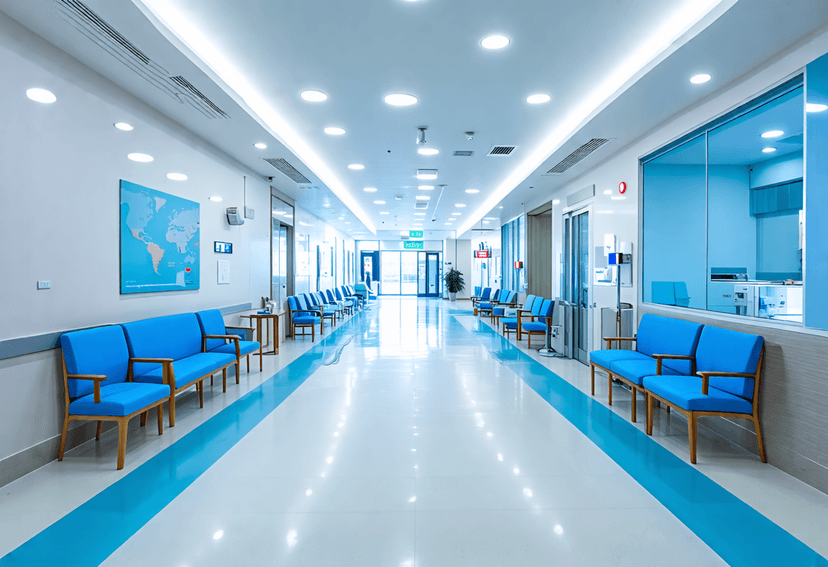
Unparalleled Medical Care at Burjeel Medical City, Abu Dhabi
Experience the best of medical care and hospitality at Burjeel
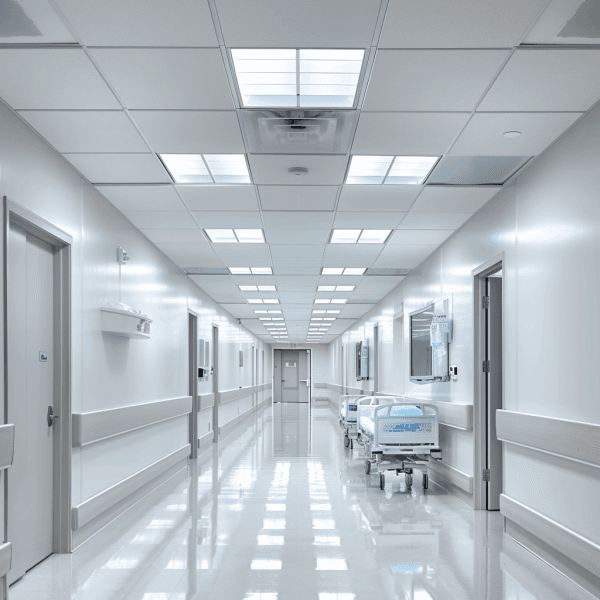
Top Hospitals for Bone Marrow Transplant in UAE
When facing the challenging journey of a bone marrow transplant,
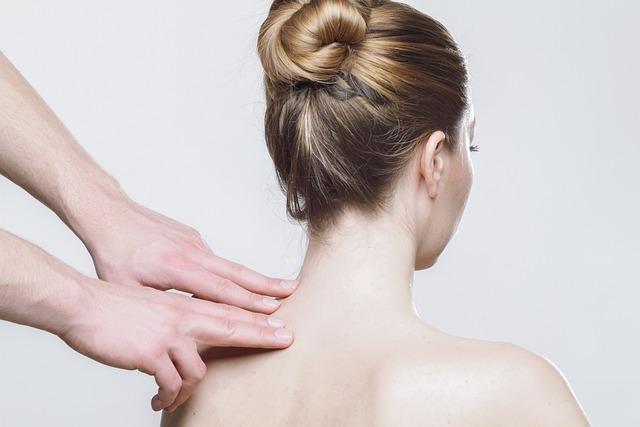
Top Hospitals for Hormone Therapy in Cancer Treatment in UAE
Hormone therapy has become a cornerstone in the treatment of
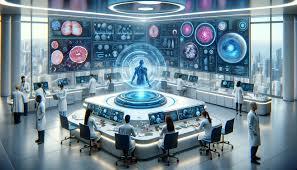
AI-Enhanced Pathology: Transforming Cancer Diagnosis in UAE
Cancer diagnosis has traditionally depended on pathologists manually examining tissue
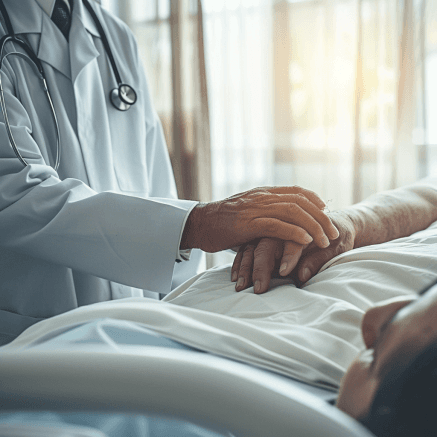
Dubai’s Top Eye Care Hospitals
Let’s face it—life in Dubai moves fast, and eye health
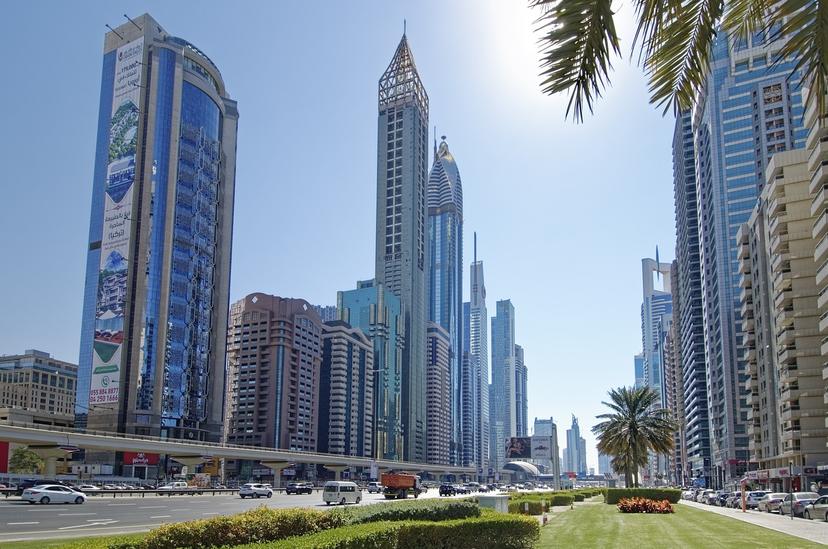
Robotic-Assisted Radiation Therapy: Innovations in UAE Cancer Treatment
Cancer treatment has evolved dramatically over the years, with technological







